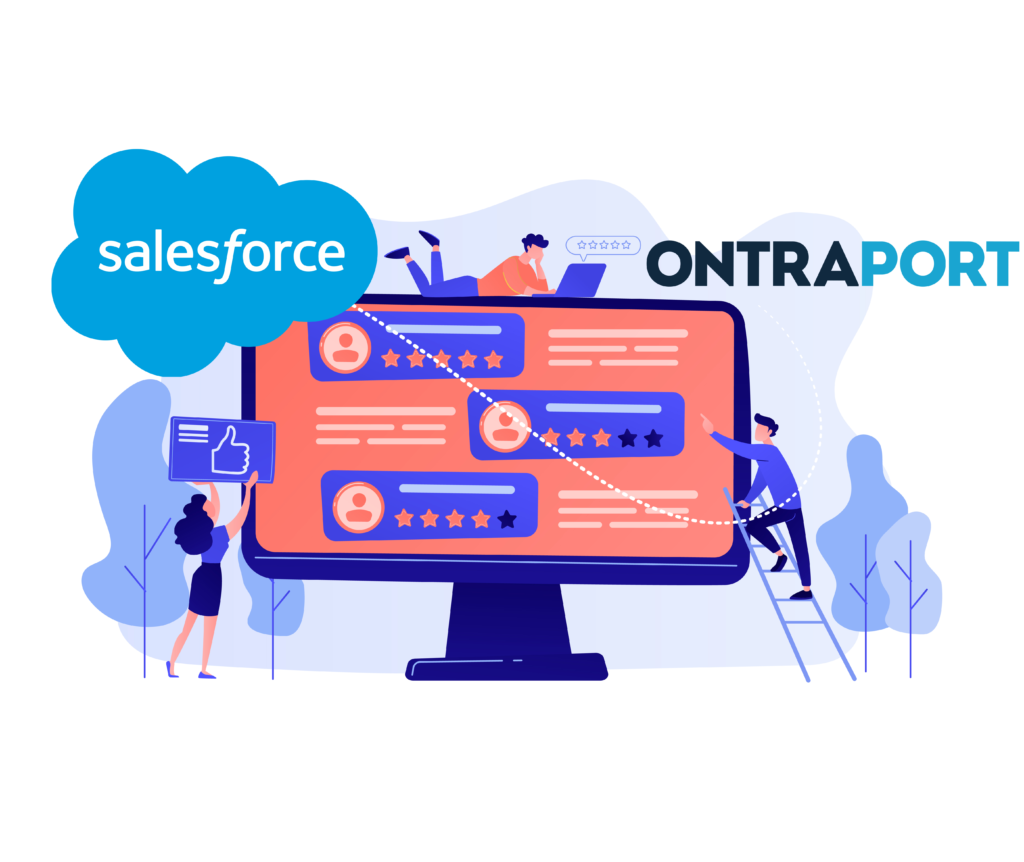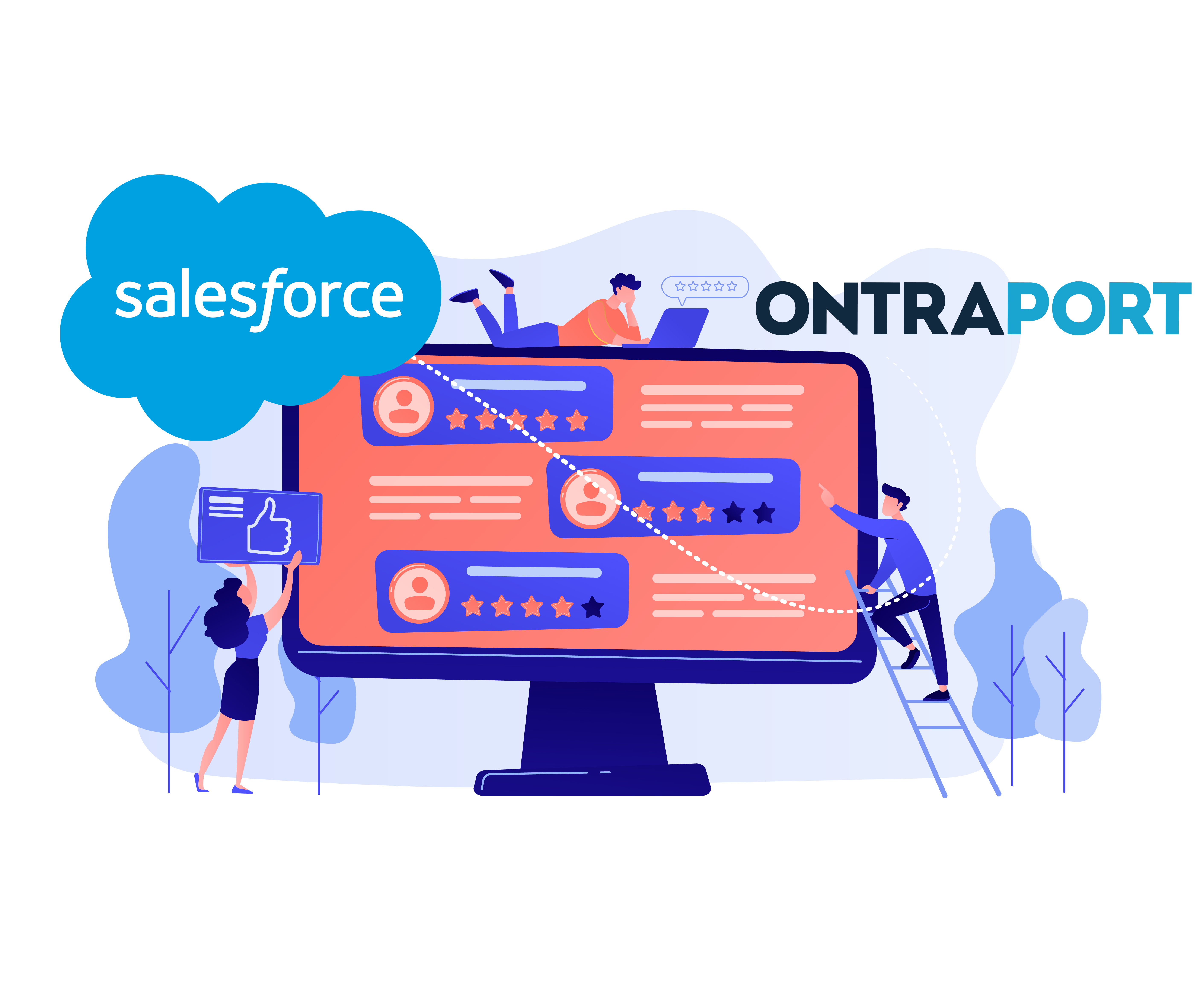Salesforce vs Ontraport: Which CRM is Right for You?
When it comes to managing customer relationships, it’s essential to have the right tools in place. That’s where CRM software comes in. With so many options on the market, it can be challenging to know which one to choose. In this article, we’ll compare two popular CRM solutions: Salesforce vs Ontraport.

Overview of Salesforce
Salesforce is one of the most well-known CRM platforms on the market. Founded in 1999, Salesforce has been a leader in the industry for over 20 years. The platform is designed to help businesses manage customer relationships, automate sales processes, and improve overall efficiency.
Overview of Ontraport
Ontraport is a newer player in the CRM space, founded in 2006. While not as well-known as Salesforce, Ontraport has developed a reputation for being an all-in-one platform for small businesses. The platform offers features like email marketing, CRM, marketing automation, and e-commerce.
Pricing
One of the most significant factors in choosing a CRM platform is pricing. Both Salesforce and Ontraport offer a variety of pricing plans to choose from.
Salesforce offers a range of pricing plans, starting at $25 per user per month for their Essentials plan. Their most expensive plan, the Unlimited plan, costs $325 per user per month. Salesforce also offers add-ons for an additional fee, such as marketing automation and e-commerce capabilities.
Ontraport also offers several pricing plans, starting at $79 per month for their Basic plan. Their most expensive plan, the Enterprise plan, costs $497 per month. Ontraport offers additional features like e-commerce, membership sites, and affiliate tracking as add-ons for an additional fee.
User Interface
The user interface of a CRM platform can have a significant impact on usability and overall user experience. Salesforce and Ontraport both offer user-friendly interfaces, but there are some key differences.
Salesforce’s interface is known for its complexity. While the platform offers a lot of features and customization options, it can be overwhelming for new users. However, once you become familiar with the platform, it’s easy to navigate.
Ontraport’s interface is more straightforward and user-friendly. The platform’s drag-and-drop builder makes it easy to create campaigns and workflows, even for users with little to no technical expertise.
Features
Both Salesforce and Ontraport offer a wide range of features to help businesses manage customer relationships and automate sales processes. However, there are some key differences between the two platforms.
Salesforce’s main focus is on sales automation and pipeline management. The platform offers features like lead and opportunity management, sales forecasting, and territory management. Salesforce also offers add-ons for marketing automation and e-commerce.
Ontraport is designed to be an all-in-one platform for small businesses. The platform offers features like CRM, email marketing, marketing automation, e-commerce, and membership sites. Ontraport’s automation features allow businesses to automate tasks like lead scoring, lead nurturing, and sales follow-up.
Integrations
Integrations are an essential consideration when choosing a CRM platform. Both Salesforce and Ontraport offer a wide range of integrations with other tools and platforms.
Salesforce offers integrations with popular tools like Mailchimp, HubSpot, and Google Apps. The platform also has an extensive marketplace of third-party apps and integrations.
Ontraport offers integrations with tools like Zapier, Stripe, and WordPress. The platform also has an API that allows businesses to create custom integrations.
Support
Finally, support is an essential consideration when choosing a CRM platform. Both Salesforce and Ontraport offer support to their users, but there are some differences.
Salesforce offers 24/7 support via phone, email, and chat.
They also have a large online community where users can find answers to common questions and get support from other users.
Ontraport offers email and phone support during business hours. They also have an online knowledge base with articles, tutorials, and videos to help users get started with the platform.
Which CRM is Right for You?
Choosing between Salesforce vs Ontraport ultimately depends on your business needs and budget. Here are some key takeaways to consider:
Choose Salesforce if:
Your business focuses primarily on sales automation and pipeline management.
You have a larger budget and can afford the higher pricing plans.
You need a wide range of integrations and add-ons.
Choose Ontraport if:
You’re a small business looking for an all-in-one platform for CRM, email marketing, and automation.
You’re looking for an affordable option with a user-friendly interface.
You need features like e-commerce, membership sites, and affiliate tracking.
To provide a more comprehensive understanding of Salesforce vs Ontraport, here are some pros and cons of each platform:
Salesforce Pros:
Offers robust sales automation and pipeline management features.
Integrates with a wide range of third-party tools and platforms.
Offers extensive reporting and analytics capabilities.
Salesforce Cons:
Can be expensive, especially for smaller businesses.
Has a complex user interface that can be overwhelming for new users.
Requires significant setup and customization to get started.
Ontraport Pros:
Offers an all-in-one platform for small businesses.
Provides a user-friendly interface with a drag-and-drop builder.
Affordable pricing plans, especially for smaller businesses.
Ontraport Cons:
Limited features compared to Salesforce, especially when it comes to sales automation.
Less integration options compared to Salesforce.
Limited support outside of business hours.
By understanding the pros and cons of each platform, you can make an informed decision about which CRM solution is best for your business.
In conclusion, both Salesforce and Ontraport are powerful CRM platforms that offer a range of features to help businesses manage customer relationships and automate sales processes. By considering factors like pricing, user interface, features, integrations, and support, you can choose the platform that best fits your business needs.
Other Alternative
Simply CRM is a cloud-based customer relationship management (CRM) software that is designed to help businesses manage their customer relationships and sales processes. It offers a range of features and tools that can help businesses streamline their sales processes, track customer interactions, and improve customer engagement.
One of the key features of Simply CRM is its contact management tools. The software allows businesses to store all of their customer information in one central location, making it easy to access and update customer records as needed. Businesses can also segment their customer database based on various criteria, such as demographics, purchase history, and engagement level, allowing them to target specific groups with personalized marketing campaigns.
Simply CRM also offers sales pipeline management tools that allow businesses to track their sales processes from start to finish. The software provides a visual pipeline view of all open deals, allowing businesses to see where each deal is in the sales process and identify potential bottlenecks. This can help businesses prioritize their sales activities and focus on deals that are most likely to close.
In addition to its sales pipeline management tools, Simply CRM also offers marketing automation tools that can help businesses streamline their marketing processes. The software allows businesses to create and send email campaigns, track website visitors, and monitor social media engagement, all from within the platform. This can help businesses improve their customer engagement and drive more leads and sales.
Simply CRM also offers a range of other features, including task management tools, team collaboration tools, and reporting and analytics tools. The software is designed to be easy to use, with a simple and intuitive user interface that requires no technical expertise. It also offers a range of integrations with other popular business tools, such as Zapier, Mailchimp, and QuickBooks.
Overall, Simply CRM is a powerful and versatile CRM software that can help businesses of all sizes manage their customer relationships and sales processes more effectively. Its range of features and intuitive user interface make it a popular choice for businesses looking to improve their customer engagement and drive more sales.




